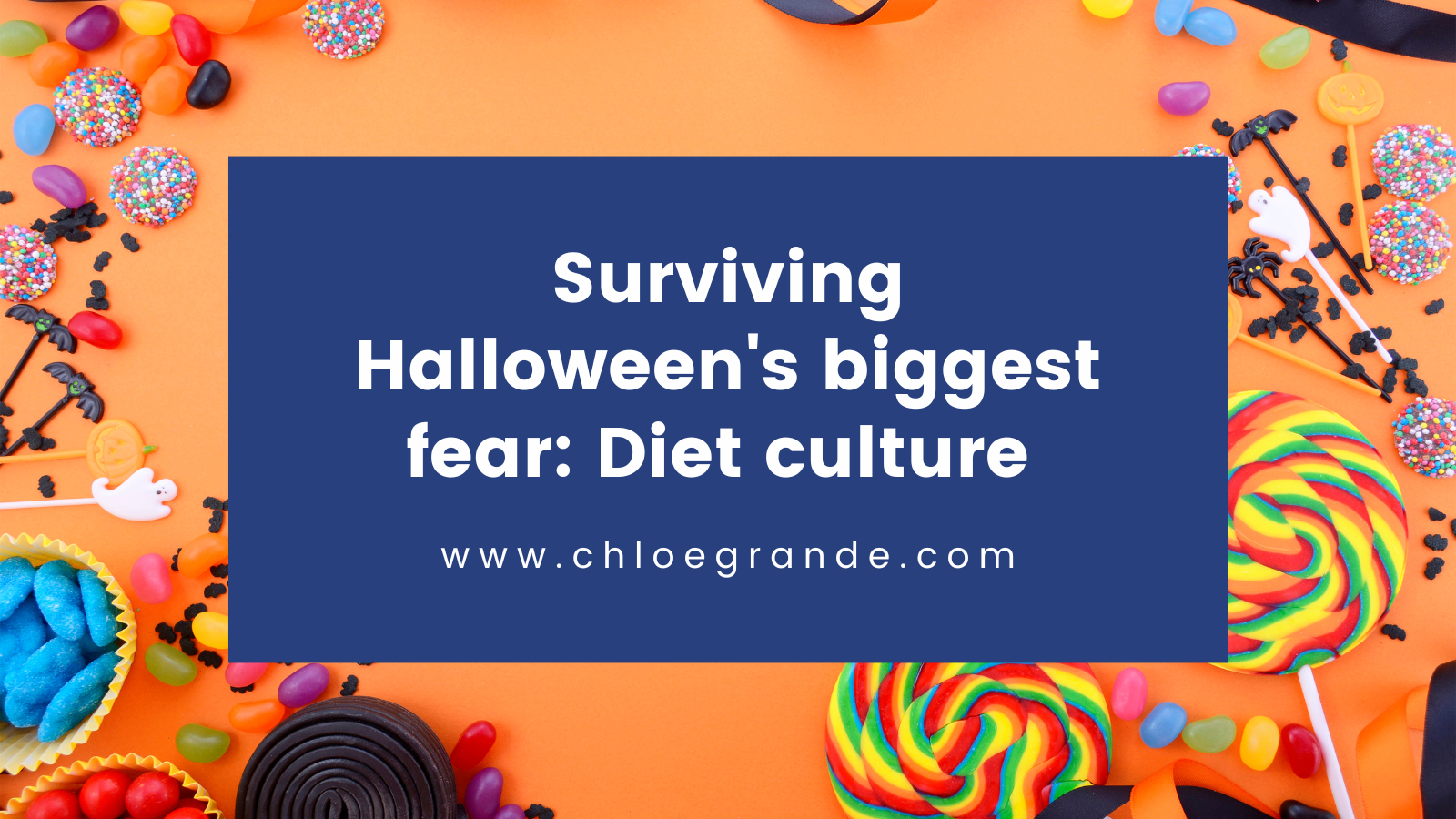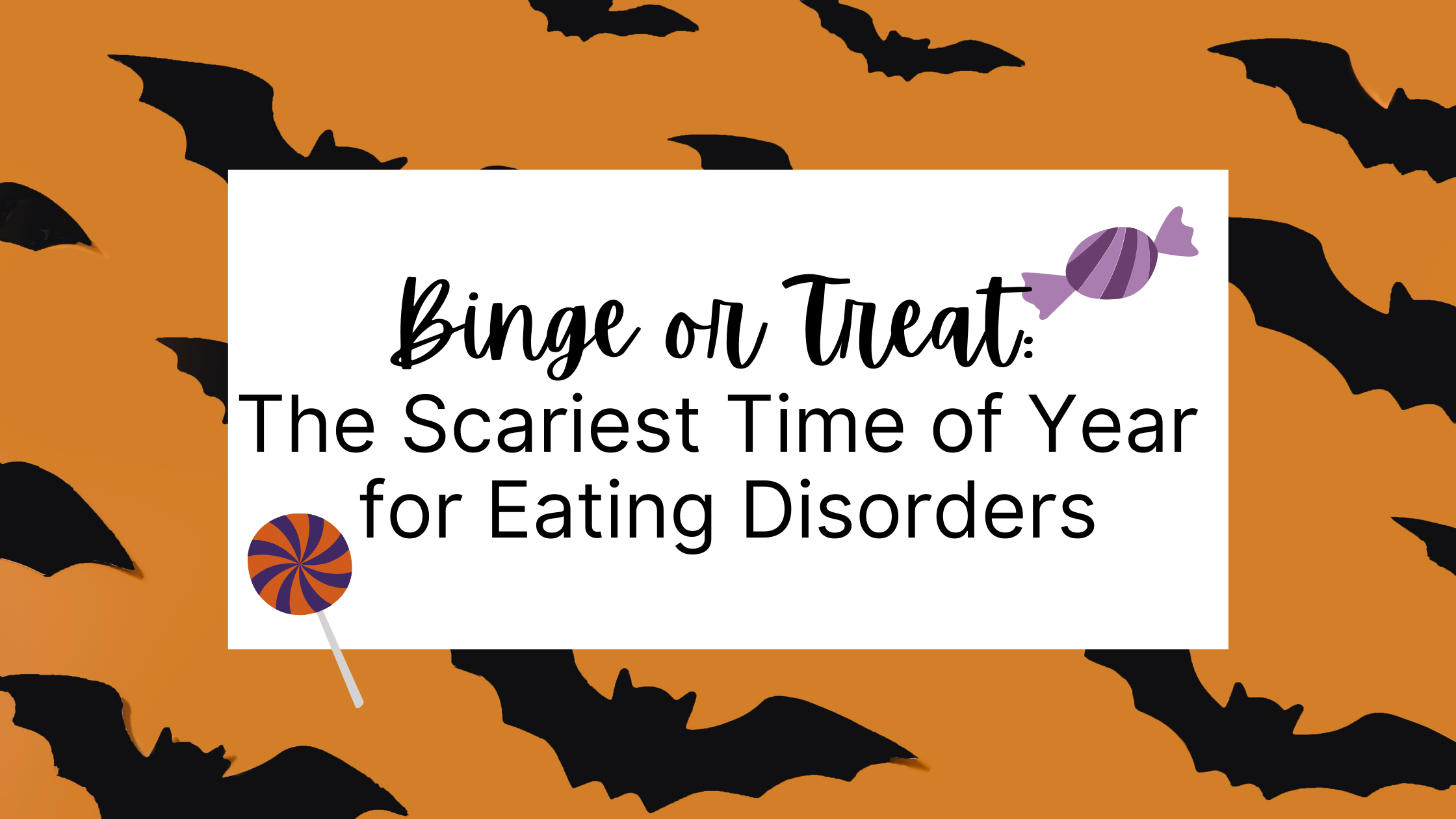On behalf of people everywhere who have experienced the wrath of binge eating disorder, please stop saying you are “binge-watching” a TV show on Netflix.
The word “binge” carries a lot of weight, in the context of mental illness. Binge eating disorder (BED) is considered to be the most common eating disorder and affects both men and women, more proportionately than other EDs.
According to the National Eating Disorder Information Centre, binge-eating episodes are characterized by:
- the consumption of an unusually large amount of food during a relatively short period of time,
- feelings of loss of control, and
- marked distress over eating behaviour.
What happens when I hear someone say “binge-watching”
First, the word itself triggers an emotional reaction. I immediately picture one of my countless episodes of uncontrollable, guilt-filled eating.
When you’re in the clutches of a BED episode, it is one of the worst feelings you can imagine. Overwhelmingly, there is an urgency to consume all you can eat and any food cravings in sight — without anyone noticing. It truly feels like you have lost complete control of your body and mind.
Hunger cues mean nothing because you can’t stop until everything is gone. It makes no sense, but you have to keep going. Keep going to hide it, keep going to numb yourself, to feel something and nothing all at once.
The problem with using “binge” in the wrong context
I feel horrible just thinking about a BED episode. Then I feel like I shouldn’t feel bad because everyone binge-watches, and if bingeing is normal than so is binge-eating and there is nothing wrong with me and I should have the power to stop it … right?!
And then, I realize that binge-watching and binge-eating aren’t comparable at all. One describes a pleasurable activity and the other is symptomatic of a debilitating mental illness.
The crux of the matter isn’t only that “binge-watching” is triggering to those with lived experience — it’s also that it downplays a very serious disorder and is, frankly, just the wrong choice of word. We can do so much better.
What we can say instead
I’ve racked my brain (and the Internet!) to find things we can say instead of “binge-watching,” rated from most creative to least.
- Watching frenzy — A fun alternative. “I went on a Parks and Rec watching frenzy this weekend. Leslie Knope is the best.”
- Spree, jamboree or TV retreat — Some quirky alternatives. “You deserve a TV retreat, friend. Bring out the comfy clothes, popcorn and blankets” (credits to this Mashable article for the suggestions).
- Netflix marathon — A tried-and-trued substitute. “Want to watch WandaVision this weekend? I’m ready for a Netflix marathon of back-to-back episodes.”
- Devoured — A less harsh and triggering version. “My friends and I are so ready to devour the next season of This Is Us. Bring on the tissues!”
- Watch — A simple fix. “Last night I watched TV, just like every night since COVID started.”

Word choice matters — I hope this post helps us see the problems with using “binge” in the wrong context. It isn’t hard to replace, especially knowing the potential implications behind it. Plus, who doesn’t enjoy a good TV watching frenzy? ❤️



But I do have a feeling of loss of control, and marked distress over binge watching a show. I usually don’t binge, or watch shows at all.. but if I do try to watch a show, I will most likely end up binging it and feel horrible, addicted, and distressed. So I feel correct and justified when saying binge watching.
I think this is something that partially gets better with recovery. I get the thought, but a lot of things are really triggering going into it, and you can’t avoid most of them (food, clothing, etc). If binge-watching TV was a direct reference or mocking eating disorders, that would be different, but it’s something that’s triggering to us when we’re in the sensitive stages of early recovery, or active ED. Part of recovery is working on being less triggered by things that are unavoidable or not harmful but that bring up bad associations for us, which is often a lot of things.
Even binge-eating is a reference to binge-drinking, so you could say it’s also triggering to people who have used alcohol unhealthily or or had an addiction to talk about binge-eating. I get that it’s hard to hear, but I think asking that no one should use the phrase binge-watching is still eating-disordered in the sense that it’s avoidance. There are triggers we can and should try to avoid, like counting calories, diet culture, and all that stuff, but to me personally I understand this phrase is hard initially in recovery but falls under the larger category of triggers we get exposed to as we ease back out of treatment and early recovery into longer term recovery and a life that’s not longer centered about our ED.
This is literally, one of the most polished and informative articles I have ever read. I am, a better person for having read that article. Excellent work Chloe!
You are too sweet, thank you 🙂
Such a poignant post, Chloë !!
Definitely something to make us all think about.
<3
Thank you, I am glad the information is helpful ❤️